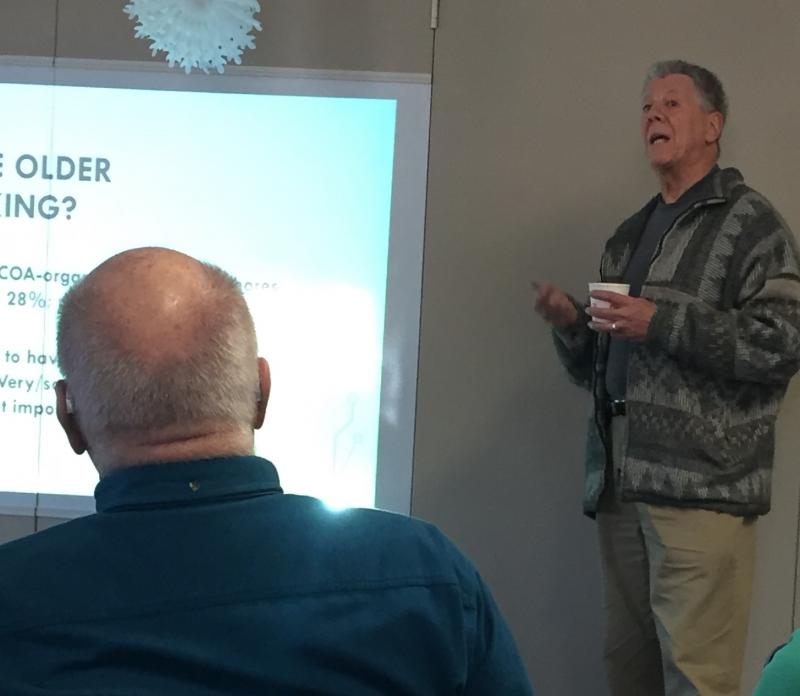Housing, mobility identified as issues for Marion seniors
MARION — Affordable housing and mobility around town are two of the biggest issues that Marion seniors face.
That’s according to an AARP survey that the Friends of the Council on Aging sent out this fall to 2,200 Marion residents over the age of 55. The town received 564 responses, and on Feb. 15 Dr. Edward Hoffer presented conclusions that organizers made using survey data.
The numbers show that 36% of the town is older than 60, with that percentage projected to increase over the next ten years.
When it came to the Council on Aging, more than half of seniors felt neutral about it, or did not use its programs. Of those that did, 90% liked the fitness classes and van rides.
Perhaps that’s because transportation around town provides a major issue. Seniors would like to be able to walk for many of their errands and feel that current sidewalk conditions prevent them from doing so. Of the seniors that responded, 42% were dissatisfied or very dissatisfied with the state of sidewalks. Seniors at the session also commented that the sidewalks could be much more passable if they were plowed in the winter, though the current conditions may prevent that.
Hoffer said that the town does not currently have the funds to address the sidewalk quality issue until the bond for Sippican School is paid off in two years, at which time the Selectmen will consider upgrades.
Housing is another major issue, with 90% of respondents saying that the town needs more options. Many survey respondents said they would prefer to downsize and not move, as many struggle with chores around the house as they age.
Hoffer said that the Council on Aging plans to look for grants that would allow seniors to install rails and handbars for safety, or hire others to help with chores. The town organization may also purchase additional benches (which were often requested by seniors who would like to walk), and offer more evening activities at the community center.
On the town side, Hoffer said that he would go before the Planning Board next week to ask about a zoning change that would allow for smaller lots and houses, which would enable seniors to downsize. Casey Cole-Vieira, of the Affordable Housing Trust, also said that it was looking at a project to help seniors.
After the brief presentation, much of the session was devoted to gathering more attendee feedback.
The most popular topic of discussion was where to put senior housing, with many saying that they would love to be in the Village because of its walkability, but that the current zoning does not easily permit that. Attendees also requested that the Council on Aging look into reputable ways to home sharing.
Seniors also said that sometimes affordability was not an issue in home improvement jobs, but finding someone to do the job at a reasonable rate was. Hoffer suggested it might be a good use of Tabor Academy community service hours to have students help with those.
One Littleneck Village resident complained about slow maintenance response there, but Hoffer said that many of the people who responded to the survey were from Littleneck and seemed satisfied with it. Seniors did, however request slower speeds on Route 6 near the senior housing complex, and a crosswalk with flashing lights to let them cross the four lane road safely.














